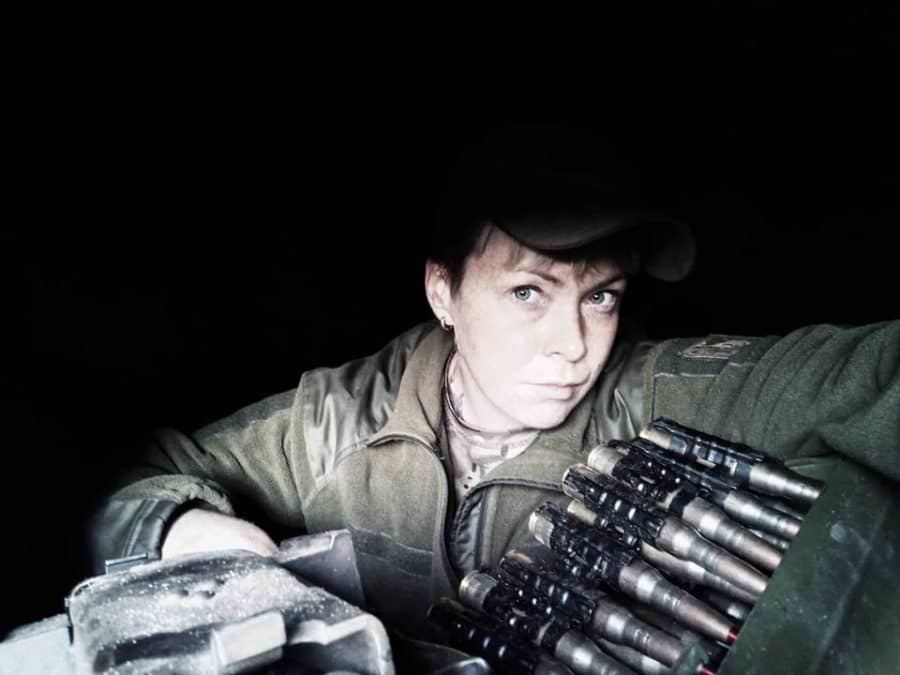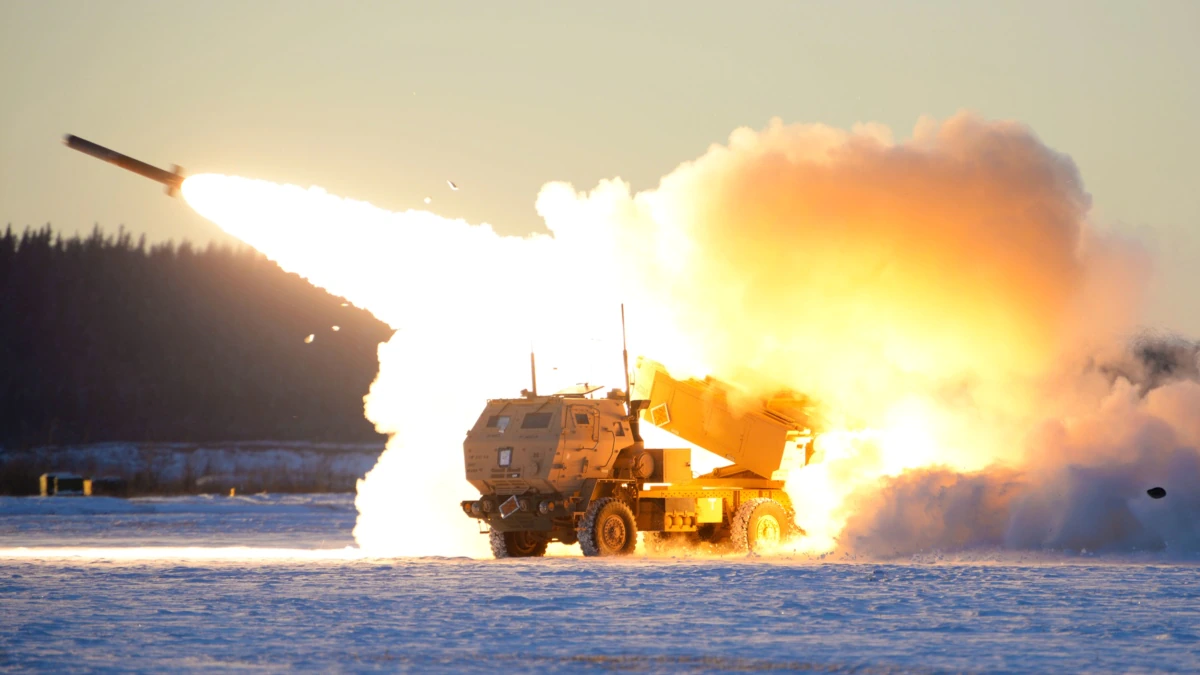In many ways, Liudmyla Meniuk’s family reflects the history of modern Ukraine. Both of her grandfathers fought with the Red Army in the Second World War. One of them was killed during the demining of Budapest. Her father was also in the military and was one of the many liquidators of the accident at the Chornobyl nuclear power plant in 1986. He died of radiation exposure. Her younger son, Stanislav, a volunteer paramedic in the Aidar Assault Battalion, was killed during a combat mission in Luhansk Oblast in the summer of 2014 after just two weeks of service.
“My son had four herniated discs, but this didn’t discourage him from practicing sports. When the war broke out in 2014, all the men in my family went to the military enlistment office. I tried to persuade my son to stay at home and do volunteer work, but he replied: ‘Mom, collect all my medals and throw them in the trash because one day my children will ask why you, Dad, who is so strong, stayed at home and didn’t defend your country....’ When I saw him off to the front, I had a feeling that he wouldn’t return. But I couldn’t hold him back. As we parted, he said: ‘I'm sorry, Mom, I love my family, but I love my homeland more...’” said Meniuk.

Compelled by a desire to continue her son’s mission, Meniuk enlisted in the Ukrainian Armed Forces, joining her son’s battalion. She had just turned 50 and wanted, above all, to become a sniper... but it didn't turn out that way.
“Why did I make this decision? It started with a strong feeling - a desire for revenge. But over time, it became something more: the need to defeat the enemy so my grandchildren could live in peace. I always felt as though I was saving the life of someone young. I truly want more of our boys and girls to survive,” she said in an interview with Radio Liberty.
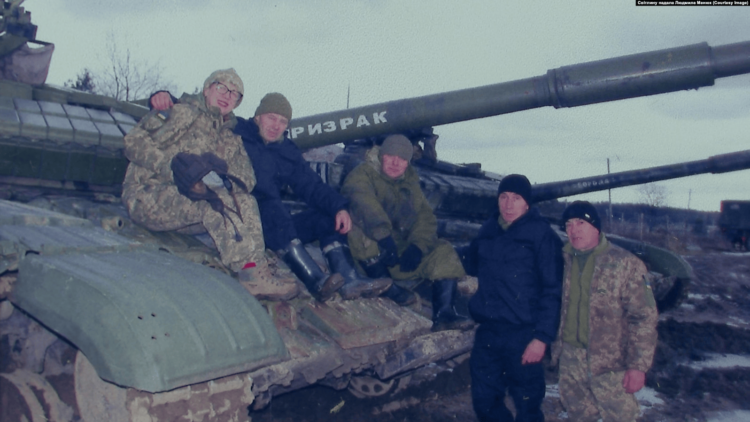
At first, Meniuk was in charge of the military warehouse, which houses automotive and armored vehicles. Then, she was assigned directly to an assault company. This is how Liudmyla Meniuk became the first woman in the Ukrainian army to hold the position of head of an armored service. “I understood that I had to fulfill what my Stanislav didn’t have time to do,” she says.
Meniuk is from the town of Haisyn in Vinnytsia Oblast. Before the war, she ran a small business and took care of her family. Her son Stanislav worked as a nurse in a private clinic in Moscow. The Russian occupation of Crimea and the invasion of Donbas in eastern Ukraine in 2014 dramatically altered the family’s plans and future. Stanislav returned to Ukraine and participated in the Revolution of Dignity.
Initially, Meniuk and her sons engaged in volunteer work, delivering supplies to the front, from night-vision devices to socks for volunteers fighting in eastern Ukraine. They later established the “Malva” Human Rights Organization of Soldiers’ Mothers“, named by Stanislav himself. Liudmyla later took the name as her call sign.
“All I knew at that time was that there was such a flower, so let it be ‘Malva.’ Later, someone told me about the tradition: women whose husbands and sons died in war planted mallows near their homes.”
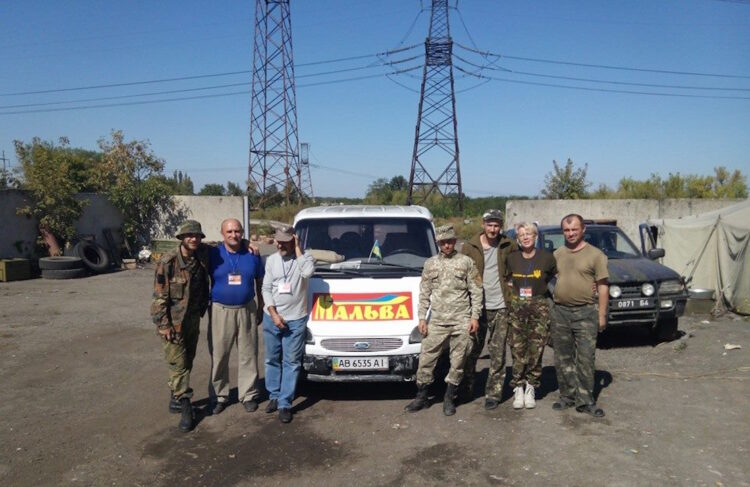
Recalling her younger son, Meniuk describes him as “cheerful, brave, a champion athlete who did arm wrestling, so he had the call sign ‘Arm.’” Stanislav’s medical background led him to serve as a paramedic in the Aidar Battalion as part of the sappers unit.
From 2014 to 2022, the Ukrainian military faced severe challenges in the Donbas. Soldiers endured intense combat while grappling with shortages of essential equipment. The Ukrainian Armed Forces struggled with insufficient weaponry, inadequate medical supplies, and a scarcity of basic protective gear. These deficiencies, coupled with ongoing casualties, created a difficult situation for Ukrainian troops on the frontlines.
On 27 July 2014, Stanislav, along with 11 other Aidar fighters, fell in battle near Lutuhyne, Luhansk Oblast. Meniuk reflects on this loss philosophically: “Everyone in this war lives their allotted time. And your day can come at any moment ... but to die, giving your life for the freedom of your Homeland - this is a very great honor,” she says in a video interview.
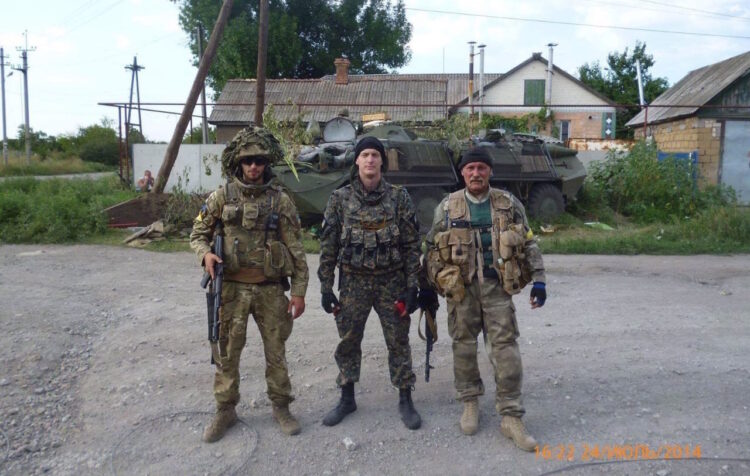
Meniuk’s decision to enlist came swiftly after her son’s death. She joined the 24th Aidar Separate Assault Battalion on 16 January 2016, where her role evolved from clerk to chief sergeant of the assault company and eventually to head of an armored service unit.
“IFVs, tanks, all available armor - this was my immediate household,” she says, recalling her unique position. In fact, she became the first woman to head the armored service in Ukraine.
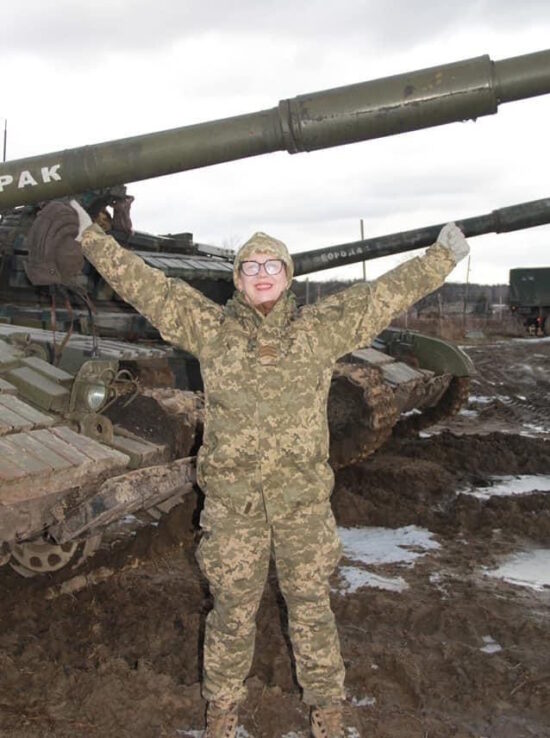
“Mama Malva,” as she was fondly called by her younger comrades-in-arms, served until 2020 despite significant health issues, including partial hearing and vision loss and severe injuries. As a result, she was discharged and decided to focus on other matters – the rehabilitation of combat veterans. Thus, in addition to two previous higher educations, she acquired a third profession – as a trained practical psychologist.
Encouraged by her fellow veterans, Meniuk took up sports and took part in the Invictus Games. She won a silver medal in powerlifting and two gold medals in rowing.
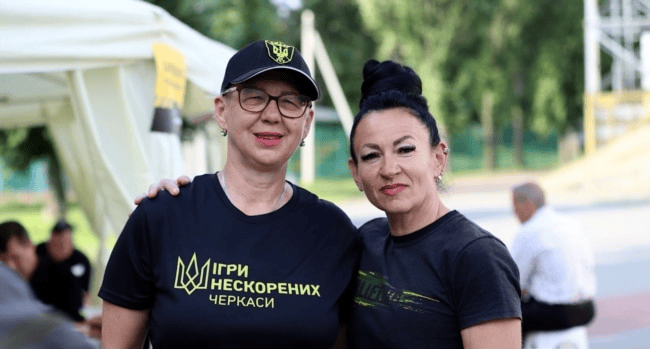
When Russia launched the full-scale invasion in February 2022, despite her many injuries, veteran Liudmyla “Malva” Meniuk did not hesitate to join the ranks as a volunteer fighter, where she reconnected with her former comrades from the Aidar Battalion on the frontlines.
“As they say, there are no former Aidar members. In this big war, we met in Bakhmut when our unit and Aidar were fighting side by side.”
Meniuk’s unit was involved in several critical operations, including the defense of Sievierodonetsk and Bakhmut. She emphasizes the resilience of her team, stating, “There was never panic in my unit. We went through Sievierodonetsk; the last evacuation from there was ours. In Bakhmut, we were replaced during rotation at the end of March. We didn’t abandon a single position …”
As part of a company tactical group, Meniuk’s primary responsibility was logistics. She oversaw the delivery of essential supplies, including ammunition, weapons, food, water, and uniforms, to various locations such as Kostiantynivka, Chasiv Yar, Khromove, and Bakhmut.
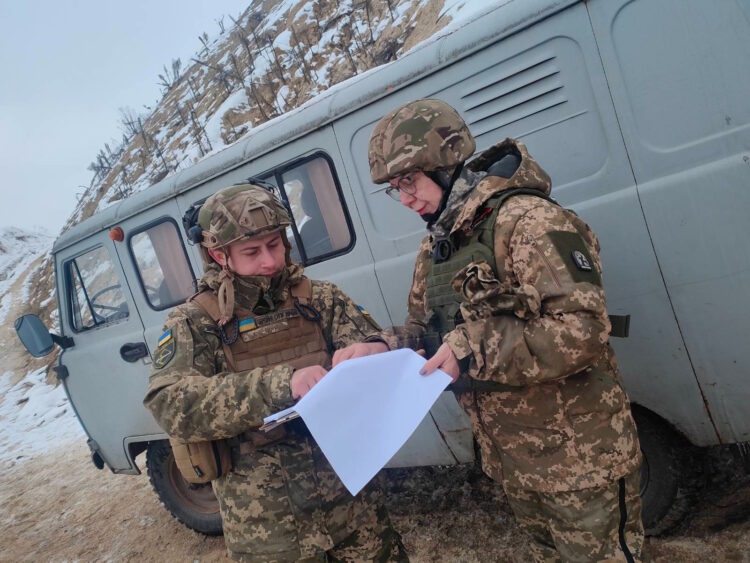
Meniuk acknowledges the ever-present danger, recounting a particularly difficult mission to deliver ammunition when she received orders to halt the operation because of heavy enemy fire on all routes. She faced a difficult decision.
“I understood: yes, it’s scary, yes, I could die. I’m not suicidal; I have plans for the future, and I want to fulfill them. But I also understood that if I don't go, my guys could die because they need ammunition to destroy the enemy,” she says. Ultimately, she and her driver successfully completed the mission.
The veteran attributes her unit’s effectiveness to thorough preparation and careful selection based on moral, psychological, and physical qualities. She emphasizes the importance of maintaining composure in the face of fear, stating, “It's normal, but you still do your duty. The main thing is to avoid panic.”
Meniuk praises the adaptability of her fellow Ukrainians in the face of war. “We Ukrainians have this incredible ability to learn, adapt, and be flexible at the level of our DNA,” she states. She notes how ordinary civilians from various professions have quickly transformed into effective military personnel.
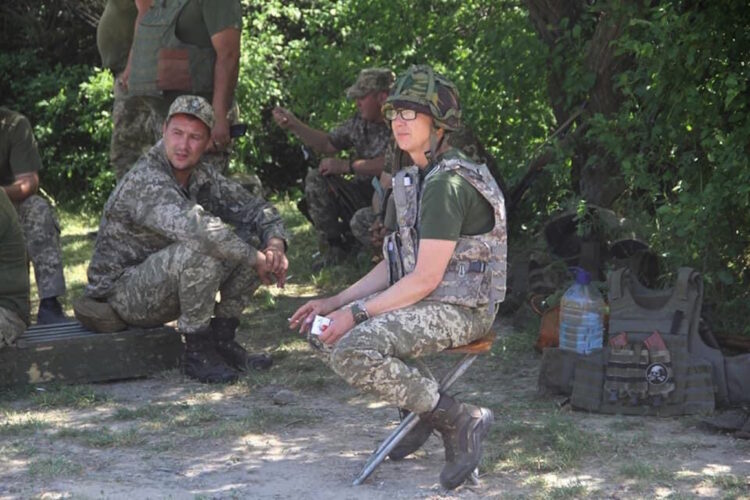
But, it’s also an inexplicable sense of humor that allows Ukrainians to overcome the realities of war. During a tense moment when entering Sievierodonetsk, Meniuk learned that one of her comrades was a plastic surgeon, and her innermost desire became a reality.
“I was born with these bags under my eyes, and it’s always bothered me. ‘So what's the problem? I’m a plastic surgeon!’ a comrade tells me. ‘I have my own clinic in Kyiv. If we’re still alive and manage to get out of Siver, we'll solve this issue,’ he added with a grin.”
Thus, Meniuk fulfilled her lifelong dream of having blepharoplasty (removing excess skin from the eyelids) and returned to duty just hours after the procedure. The men joked a bit because she had huge bruises under her eyes, but she continued to perform her duties. “Why delay fulfilling your dreams?” she told the men and encouraged them to do so as quickly as possible.
Meniuk served alongside her husband, Yurii, a combat veteran since 2004. “My husband is my support, pillar, and protection,” she says, emphasizing their shared mindset and mutual support.
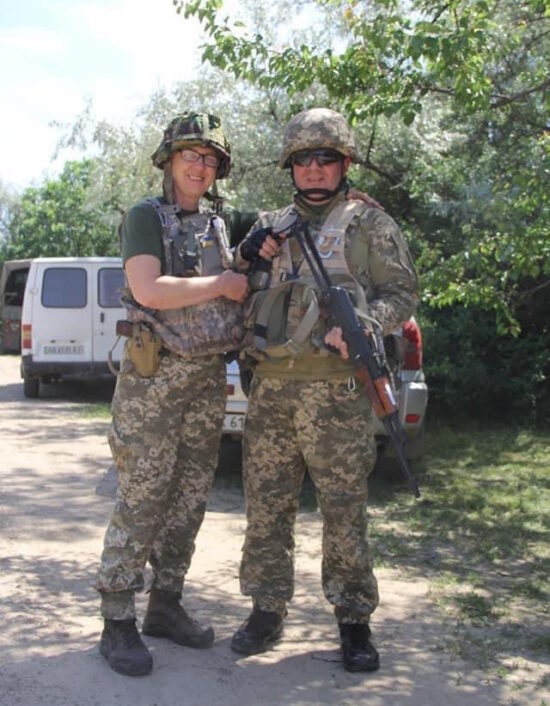
The war has brought about significant personal changes for Meniuk. “I've changed, become more restrained, don’t pay attention to trifles, probably forgive people more,” she reflects. She also notes a shift in her perspective on age and personal growth, inspired by her younger comrades.
In fact, war accelerates both age and personal growth. People mature more quickly in war… not only externally with wrinkles and gray hair but wisdom also appears alongside. She notes that the intensity of war heightens all emotions and changes interpersonal dynamics. “In war, somehow people treat each other differently, more tenderly.”
After returning to civilian life, Meniuk opened a private psychologist’s office in Haisyn. She helps military personnel and gives free consultations to war veterans
and families of fallen and missing soldiers.
In her final reflection, Liudmyla “Malva” Meniuk shares her view of veterans, people that she often sees in her office: “A veteran is a person with life wisdom, who has invaluable experience, in all directions. This is a disciplined person, for the most part, a person of their word, a faithful person.”
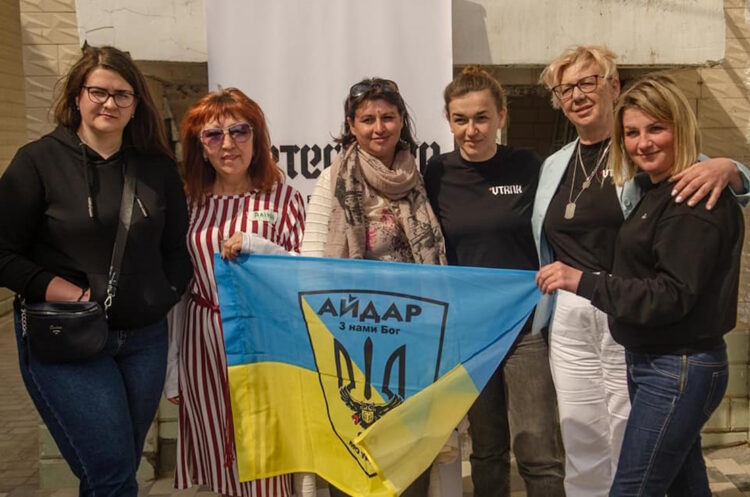
Over the past year, alongside her fellow soldiers, Meniuk has also been informing the world about the ongoing war in Ukraine - detailing how cities are being destroyed, and lives are lost due to insufficient weaponry. This year, she spoke in Davos, Munich, Washington, DC, and Austin, Texas. In September 2024, she took part in the Yalta European Strategy Forum in Kyiv, where she spoke forcefully about lagging Western assistance to Ukraine and the necessity to win this war.
While in the United States, she met with local war veterans. Former American marines were moved to tears by her accounts, telling her, “We don’t know what we would have done in your place without artillery support.” They couldn’t believe having to carry a wounded comrade over long distances, as they are accustomed to having helicopters and immediate aid for evacuation.
“We live in a different reality. Our war exists in another dimension," concludes Meniuk in an interview with Ukrainska Pravda.
RELATED:
- Ukrainian soldier survives hell of Azovstal and walks to freedom
- Ukrainian soldier faces gruelling rehab after severe combat injuries
- Defiant woman judge endures Russian captivity, torture and abuse
- Ukrainian acrobat swaps Cirque du Soleil for tank battles
- War poetry: Ukrainian female fighter pens powerful words on gender identity
- Ukrainian Woman warrior defies despair to carry on the legacy of her beloved men



